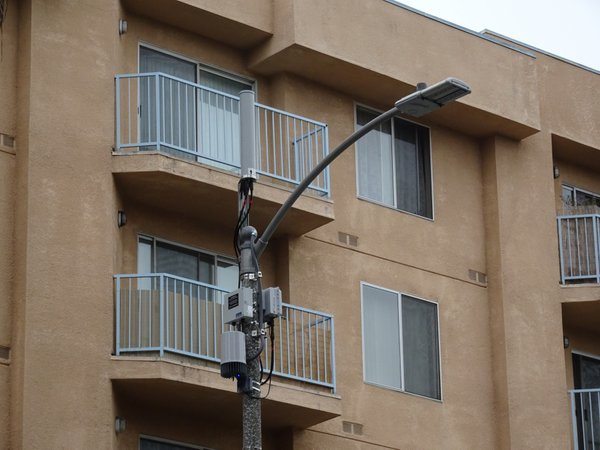Florida and California consider state legislation while FCC considers federal rules.
A lot has happened in Washington, D.C., since Mobilitie petitioned the Federal Communications Commission to set guidelines to expedite site acquisition for wireless infrastructure.
Mobilitie filed its petition shortly after President Donald Trump was elected, and in the four months since then Ajit Pai has become chairman of the FCC, former chairman Tom Wheeler and commissioner Jessica Rosenworcel have left the commission and the remaining three commissioners have heard comments on the Mobilitie petition.
The Fiber Broadband Association (fomerly the Fiber to the Home Council) and the Information Technology and Innovation Foundation are among the associations that filed comments supporting the petition, which would make it harder for local governments to delay applications for access to the public rights-of-way.
“Members of the council, including service providers, equipment vendors and fiber construction contractors, all believe — and have demonstrated — that access to public rights-of-way on reasonable, nondiscriminatory terms is critical to the deployment of 5G and other advanced telecommunications services,” the Fiber Broadband Association’s attorneys wrote. “They concur with Mobilitie that ‘wireless broadband and now 5G requires massive investments in cell sites, backhaul and transport facilities, as well as access to rights-of-way for building that infrastructure.’”
“We are very excited by the industry support demonstrated by the comments filed this month at the FCC,” said Kirk Jamieson, SVP for government affairs at Mobilitie, noting reply comments will be submitted to the agency by April 7.
The commission needs to balance the public interest in better wireless service and the industry’s desire for access to property against the rights of local and state governments to regulate their own rights-of-way and charge for use of public property. Local authorities have to consider the fact that multiple companies may want access to the same property. Approval of one application could set a precedent for future requests, or even prohibit another provider from building, depending on the size of the equipment being installed.
City by city, state by state
The companies that are trying to deploy infrastructure in cities across the U.S. are not waiting for the federal government to clear the way. Instead they are busy fighting legal and public relations battles at the state and local level.
Crown Castle is reaching out to voters in Austin, Texas, to encourage them to contact their city council representatives to voice support for wireless infrastructure. The city council has created a wireless infrastructure committee and Crown Castle is urging citizens to ask council members to expedite the committee’s review process.
In California, Sen. Ben Hueso (D-San Diego) introduced a bill that would specifically exempt small cells from local zoning review. Sen. Hueso’s bill states “the impact on local interests from individual small wireless facilities will be sufficiently minor and that such deployments should be a permitted use statewide and should not be subject to discretionary zoning review.”
In Florida, wireless industry supporters are backing legislation that would set new state rules governing small cell installations. A number of Florida municipalities have put temporary moratoriums on applications for access to the public rights of way by communication services providers. The cities want more time to develop appropriate guidelines. Unlike cities in other states, Florida municipalities have little financial incentive to work with mobile network operators that want to build in the right of way.
“We can’t charge fees for use of the right of way from communication providers,” explained Gary Resnick, mayor of Wilton Manors, Florida. “From other entities, electric or gas or whatever, we can, but not for communication providers – they’re given special status.”
Resnick said cities are also prohibited from negotiating directly with these companies. “We can’t enter into an agreement either with them, so if they want to enter some sort of agreement to use our rights of way, or a franchise, we’re not allowed to do that,” Resnick said.
Resnick, who chairs the FCC’s Intergovernmental Advisory Committee, has testified against the Florida legislation. Resnich said the federal government does not have the right to pre-empt state and local land use decisions, but he recognizes the shortcomings of Florida’s current law governing communication services providers and access to the rights of way. Resnick described Florida’s current Communication Services Act as “a state tax with a local component,” which has resulted in “about 120 different tax rates in Florida for use of the rights-of-way.” Resnick added the tax revenue does not always go to the municipality in which the infrastructure is built.
“You get the revenue based on where the end user is as opposed to where the facility is located,” Resnick said. “So if there’s a tower in my city but most of the end users who get cell service as a result of that tower live in Pompano Beach, then Pompano Beach is getting the tax revenue.”
Cities often have a complex set of issues to balance when it comes to small cell siting. Citizens have questions about urban aesthetics, RF exposure and the ability of disabled citizens to access the rights-of-way. Local authorities have to balance these concerns against the value of better wireless service, recognizing that better wireless service is unlikely to come from just one provider.
Follow me on Twitter.

